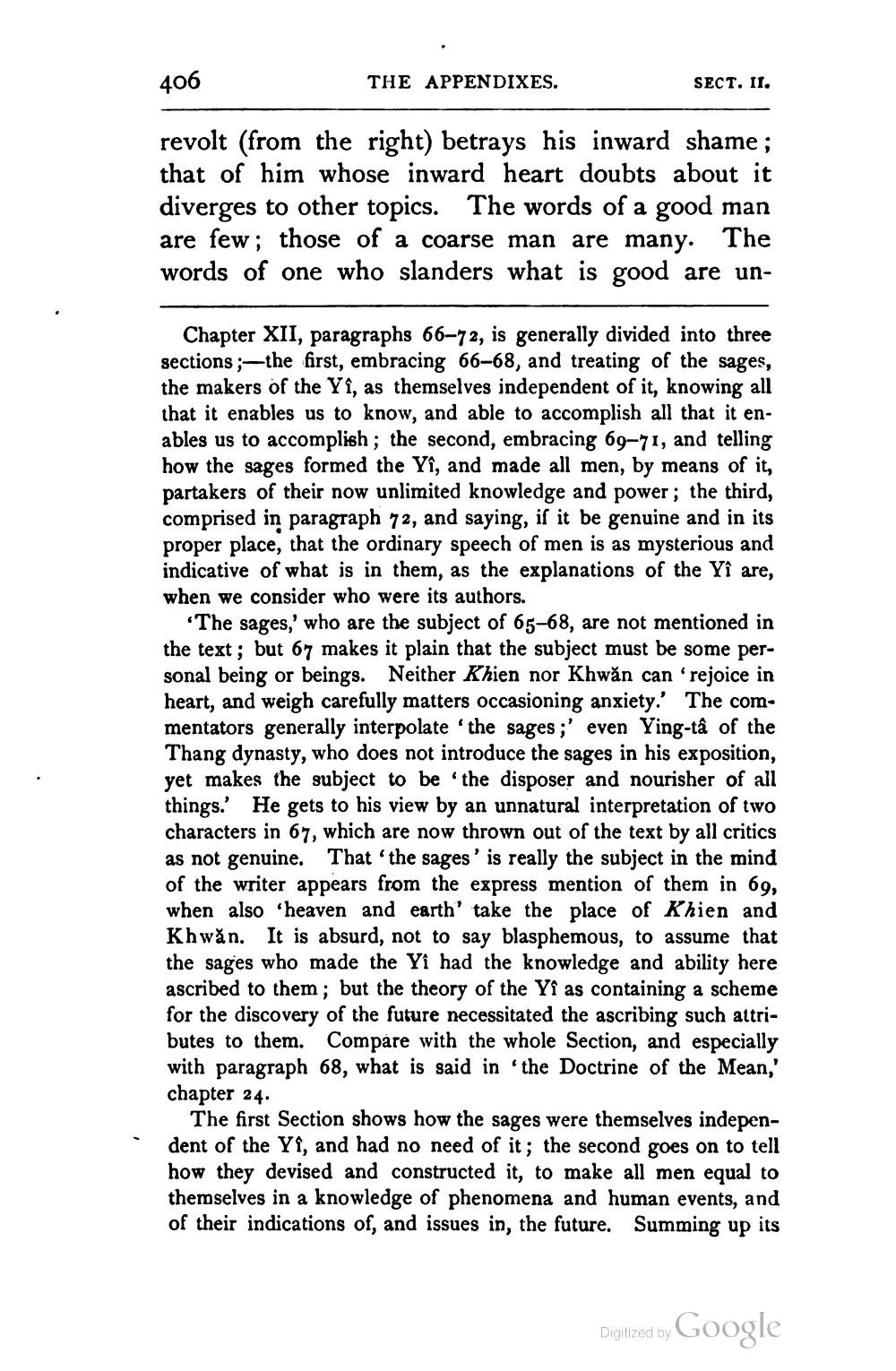________________
406
THE APPENDIXES.
SECT. II.
revolt (from the right) betrays his inward shame; that of him whose inward heart doubts about it diverges to other topics. The words of a good man are few; those of a coarse man are many. The words of one who slanders what is good are un
Chapter XII, paragraphs 66–72, is generally divided into three sections ;—the first, embracing 66-68, and treating of the sages, the makers of the Yi, as themselves independent of it, knowing all that it enables us to know, and able to accomplish all that it enables us to accomplish; the second, embracing 69–71, and telling how the sages formed the Yi, and made all men, by means of it, partakers of their now unlimited knowledge and power; the third, comprised in paragraph 72, and saying, if it be genuine and in its proper place, that the ordinary speech of men is as mysterious and indicative of what is in them, as the explanations of the Yî are, when we consider who were its authors.
The sages,' who are the subject of 65-68, are not mentioned in the text; but 67 makes it plain that the subject must be some personal being or beings. Neither Khien nor Khwăn can rejoice in heart, and weigh carefully matters occasioning anxiety.' The commentators generally interpolate 'the sages;' even Ying-tâ of the Thang dynasty, who does not introduce the sages in his exposition, yet makes the subject to be the disposer and nourisher of all things. He gets to his view by an unnatural interpretation of two characters in 67, which are now thrown out of the text by all critics as not genuine. That 'the sages' is really the subject in the mind of the writer appears from the express mention of them in 69, when also heaven and earth' take the place of Khien and Khwăn. It is absurd, not to say blasphemous, to assume that the sages who made the Yi had the knowledge and ability here ascribed to them; but the theory of the Yi as containing a scheme for the discovery of the future necessitated the ascribing such attributes to them. Compare with the whole Section, and especially with paragraph 68, what is said in the Doctrine of the Mean,' chapter 24.
The first Section shows how the sages were themselves independent of the Yi, and had no need of it; the second goes on to tell how they devised and constructed it, to make all men equal to themselves in a knowledge of phenomena and human events, and of their indications of, and issues in the future. Summing up its
Digitized by Google




